Your Sleep Quality Declines As You Age. Here’s What to Do About it
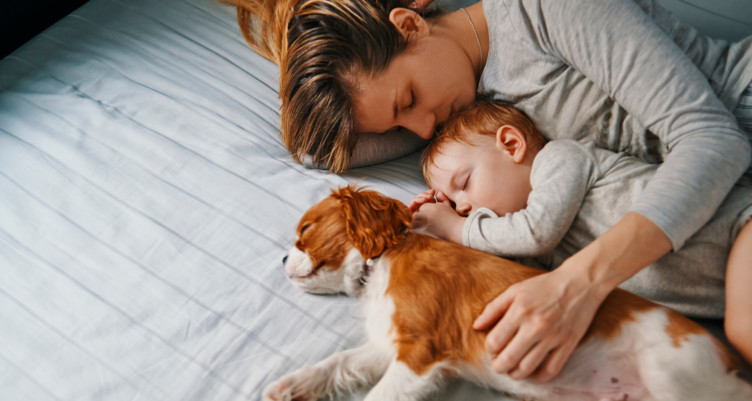
- A great night’s sleep involves more than just your bedtime. What happens behind the scenes determines how you’ll feel in the morning.
- Sleep scientist, and Bulletproof Radio podcast guest Dr. Daniel Gartenberg, Ph.D., has identified eight elements of restorative sleep, that he uses to calculate your Sleep Age™, which is his method of assessing sleep quality.
- These eight elements decline with age, but there are things you can do to strengthen them.
- Keep reading to find out what elements of sleep make you feel well-rested and ready for the day ahead.
When people feel chronically tired, they are usually under the impression that they need to go to bed earlier. It’s not always that simple, though. A great night’s sleep involves more than just your bedtime. What happens behind the scenes determines how you’ll feel in the morning.
Sleep scientist Dr. Daniel Gartenberg, PhD, has identified eight elements of restorative sleep that he uses to calculate your Sleep Age™, his method of assessing sleep quality. Many of these measures decline with age, so your sleep age clues you in on how youthful and effective your sleep is.
Keep reading to discover how to turn back the clock on your sleep, leaving you feeling well-rested and ready for the day ahead.
Instantly download the Bulletproof Sleep Roadmap, your all-in-one guide to sleeping better, starting tonight.
8 Elements of Youthful Sleep
![]() 1. Sleep duration
1. Sleep duration
Sleep duration refers to how long you sleep, from the moment you drift off to the moment you wake up for the day.
Sleep duration gets shorter with age. “It is still unclear whether this is a symptom or a cause of neurodegeneration,” says Gartenberg, who recently appeared on an episode of Bulletproof Radio (iTunes). “However, increasing evidence is suggesting that it is causally related to various age-related disease processes, and basically every chronic illness.”
Why this happens is likely a combination of factors. Evidence shows that the pineal gland, the gland in your brain that secretes sleep hormones, doesn’t work as well as you age.[1] It’s a self-perpetuating cycle — less sleep, less repair to the brain, less effective brain, less sleep…ad infinitum.
It’s common that people think they don’t sleep enough, but sleep duration is only part of the equation. While it may be true that some people don’t sleep enough, the majority of people with sleep problems really want restful, restorative sleep that makes you feel refreshed and energized the next day.
Target for great sleep: Optimal sleep duration is highly individual. Conventional advice is to get seven to eight hours per night. This study shows that part of the population does well on less than six hours.
2. Sleep efficiency
Sleep efficiency differentiates between the amount of time you’re spending in bed, and the time you’re actually sleeping.
“Healthy sleepers have a sleep efficiency of 90% or more. Below 85% is a problem,” says Dr. Gartenberg.
Target for great sleep: To feel refreshed, you want to spend less than 10% of your time in bed tossing and turning. If that’s not happening, try adding more exercise to your days. Or, the problem may be that you’re not hitting your sleep hormone rhythms, in which case you can adjust your bedtime until you find the sweet spot.
3. Awakenings
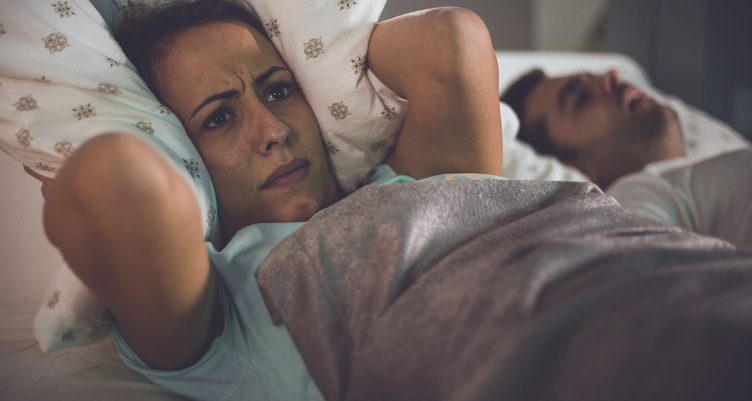 Everyone, even champion sleepers, will wake up several times per night. You won’t remember your awakenings if they last a minute or two. Chances are, you’re aware of awakenings that last longer than that.
Everyone, even champion sleepers, will wake up several times per night. You won’t remember your awakenings if they last a minute or two. Chances are, you’re aware of awakenings that last longer than that.
This is where sleep apps and trackers come in. Since you’re not fully conscious during all of your awakenings, a tracker can help you piece together the story of how well you slept.
Target for great sleep: According to Dr. Gartenberg, your sleep efficiency takes a hit when your awakenings last 20 minutes or more.
Related: Does a Sleep Headband Really Improve Sleep? A Look at the Science
4. Sleep onset latency
You might think it’s ideal to fall asleep within a few minutes of hitting the pillow. That’s not the case. According to Dr. Gartenberg, if you’re falling asleep within five minutes of lying down, there’s a good chance you’re sleep deprived. Or, you have a solid evening routine and your brain responds to well-established sleep cues.
If it takes more than 30 minutes for you to fall asleep every night (not a night or two here and there), Dr. Gartenberg says that could indicate “eveningness insomnia,” or trouble falling asleep and staying asleep.[2]
Target for great sleep: Falling asleep within 10-20 minutes of settling into bed for the night is ideal.
5. Deep sleep duration
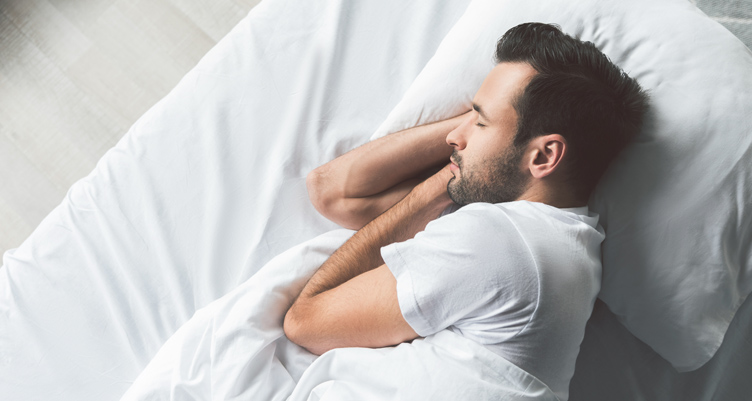 Deep sleep only lasts an hour or so each night, but a lot happens during this phase. Cell repair, cognitive power, and memory are directly tied to your time spent in deep sleep, which also declines with age.[3]
Deep sleep only lasts an hour or so each night, but a lot happens during this phase. Cell repair, cognitive power, and memory are directly tied to your time spent in deep sleep, which also declines with age.[3]
Since you have no way to assess your own sleep phase while you’re unconscious, you have to rely on sleep trackers and apps to help you understand what you’re working with.
Target for great sleep: According to Dr. Gartenberg, in your 20s, your deep sleep duration lasts around 1.5 hours, and that number slides down toward the half-hour range in your elder years. Here are some things you can adjust to lengthen your deep sleep phase.
6. REM sleep duration
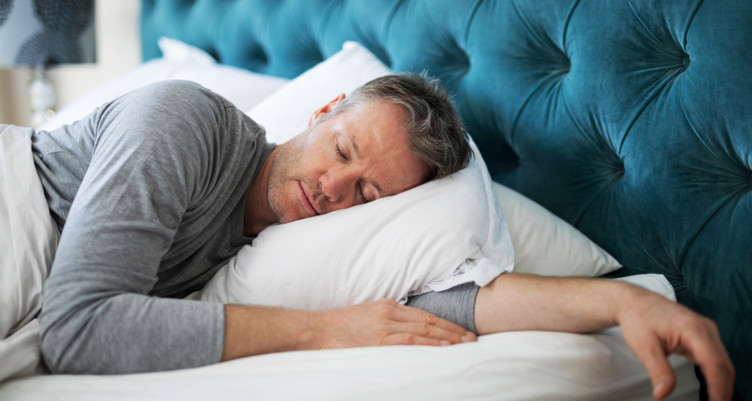 Chances are, you know rapid-eye-movement, or REM sleep, as the dreaming sleep stage. REM isn’t just for bizarre hallucinations, though. During REM sleep, your brain shows just as much activity as it does when you’re awake and aware. Experiences from the day strengthen into learned processes and memories,[4] and it helps you stay in control of your emotions.[5] REM sleep is so integral to the learning process that people who are sleep deprived have trouble remembering things they practiced that day. It can also help you maintain a healthy weight.[6]
Chances are, you know rapid-eye-movement, or REM sleep, as the dreaming sleep stage. REM isn’t just for bizarre hallucinations, though. During REM sleep, your brain shows just as much activity as it does when you’re awake and aware. Experiences from the day strengthen into learned processes and memories,[4] and it helps you stay in control of your emotions.[5] REM sleep is so integral to the learning process that people who are sleep deprived have trouble remembering things they practiced that day. It can also help you maintain a healthy weight.[6]
Target for great sleep: Dr. Gartenberg recommends that you spend 20% of your total sleep time in REM sleep. A tracker can show you how much time you’re spending in each stage.
7. Brain arousals
During sleep, your brain arouses multiple times per hour, and your brain is easier to disturb as you age. This differs from awakenings in that they are short and they usually happen in response to changes in your sleep environment, like a clap of thunder that doesn’t fully wake you.
Too many arousals prevent you from getting into or staying in the more restorative deep sleep and REM phases.
Target for great sleep: More than 5 arousals per hour signals possible sleep apnea — when breathing stops and starts while you’re asleep — or too much stimulus in your environment. Discuss apnea with your doctor, and read the section in this article on creating your sleep cave.
8. Timing
A consistent bedtime helps keep your circadian rhythm predictable. Your body will know when to start pumping out sleep hormones to make sleep onset easier.
Timing also matters because you get a surge of cortisol soon after you fall asleep that your brain uses for repair and connection processes. If you’re not asleep when the surge hits, you feel awake again (that’s your second wind), and your brain doesn’t get its much-needed energy. Aim to go to bed before your second wind.
Target for great sleep: Aim for a consistent bedtime every night, even on weekends. Head to your bedroom to wind down by 10:30 so that you don’t hit your second wind.
If you do shift work and cannot keep a consistent schedule, consider a melatonin supplement. Make sure it’s plant-derived melatonin at the clinically effective dose — a dose that’s too high can give you a so-called melatonin hangover.
The first step is to track and see what you’re working with. After that, you’ll have an idea which of these elements of sleep you need to address. If your sleep is a total mess, don’t overwhelm yourself. Building one or two new habits will make a difference, and you can add more as you’re comfortable.
Sign up for early access to sales, product launches, the latest Bulletproof news and more!
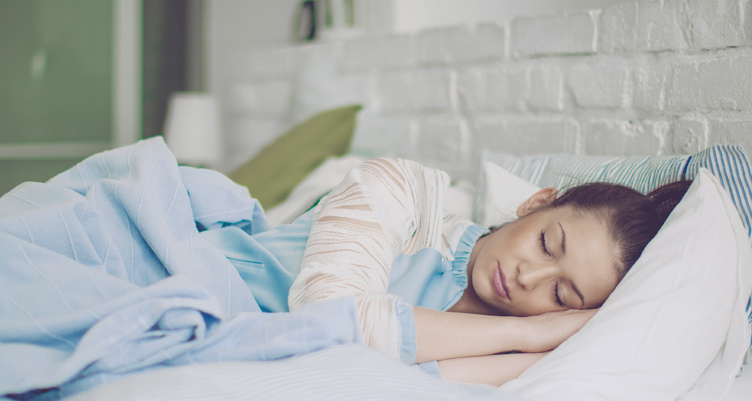 1. Sleep duration
1. Sleep duration


